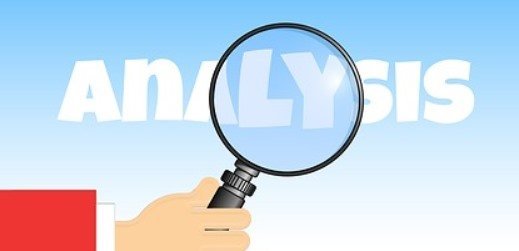Best Short-Term Goals For A New Business Or Old
Let’s talk about short-term goals for business today. Because I have 5 examples of short-term business goals you must have for your company right now.
We will also review how to set your business goals. And how to measure the daily activities leading to the achievement of those goals.
That is what we are going to cover. So, let’s not delay. And get on with short-term goals for your business today…

Disclosure: At no cost to you, I may get commissions for purchases made through links in this post.
Examples Of Short-Term Business Goals
Here are my 5 best short-term goals for businesses:
- Define your value proposition
- Analyze your target market
- Develop a business plan
- Increase profits this year
- Make smart investments for future years
First, this group represents great short-term goals for a new business. Or, an old business you are trying to revitalize.
And be sure to understand that this…
Your short-term business goals should be achieved in the next 12 months. While medium-term business goals are 1-5 years out. And, long-term goals span more than 5 years.
Finally, you might be surprised. That long-term thinking is required. When setting these 5 short-term business goals examples.
Here is what I mean. Starting with short-term business goal #1…
Short-Term Business Goal Example #1: Define Your Value Proposition

Clearly define your value proposition. Because if you don’t identify your customers. And deliver value to them.
You don’t have a business.
So, think long and hard about who your customers are. And what they desire from your product or service. In addition to the customer service level they require.
Furthermore, your value proposition should be closely tied to your business strategy. And you should know there are 3 generic business strategies…
1. Cost leadership strategy.
This strategy relies on being a low-cost producer. It is usually best for a commodity-type product or service. But it can be of benefit to other types of businesses too.
2. Differentiation-focused strategy.
Where delivering a unique product to your customer is valued over all else.
Branding, design, and innovation. They are several elements that make this strategy a success.
3. Niche strategy.
Here, both cost and differentiation take a back seat. To a narrow focus on a target market or target customer. And their highly specific needs.
Maybe you have heard the expression. “The riches are in the niches”.
Finally, one of these 3 strategies should be dominant. Because it is very difficult to be good at more than 1.
So take a step back. And do some deep thinking about goals at an early stage in your business. And, the right business strategy to deliver on those goals.
Ask yourself. What value do you want your business to offer? And how does that value relate to the business strategy you want to adopt.
Because a business value proposition. And business strategy should be tightly linked.
And, they should be supported by our second short-term business goal example…
Short-Term Goals For A Business Example #2: Analyze The Market

There is no sense in defining your value proposition. And determining your business strategy. Without knowledge of the market. That your business pursues.
Market analysis involves, at a minimum, knowing the market opportunity. Or, the revenue potential.
Allow me to give you an absurd example to drive home the point…
Let’s say you are going to start a niche retail clothing store in Southern Florida. The store’s focus will be selling heavy winter coats.
Well, I doubt there is much of a market for the products from a store like this in Southern Florida. So, I predict this business will fail.
In theory, the business may have a great value proposition. And a sound strategy.
But, it won’t be successful in Florida. I suggest relocating the business to a city like Minneapolis.
So, complete enough research to suggest that if successful. The market opportunity will support your business.
In addition, there are many other important aspects to market analysis. Beyond market size. For example, pricing and competition are also important things to understand.
What if the market size, pricing, and level of competition do not support your value proposition and business strategy?
Then go back to short-term business goal #1. And reassess.
Once, you have short-term objectives examples for business numbers 1 and 2 working together. It’s time for our 3rd example of short-term business goals every successful company must have…
Business Short-Term Goals Example #3: Develop A Business Plan

After you have a value proposition. Linked with a business strategy. And supported by a market assessment.
Then you are on your way to having a business plan. But, I suggest you make your business plan more comprehensive.
Because every business should have a plan. No matter how big or small the business happens to be.
Think about and document how you intend to market and sell your product…
Will you use advertising? Develop a social media strategy? Sell through a website? Or have a salesforce?
How will you produce your product or service? Do it yourself out of your home? Secure a facility and hire employees? Or, contract out the production process to a 3rd party?
Finally, you should complete a financial planning exercise. Specifically, prepare budgeted financial statements.
Do this to project the financial success of your business. And any outside funding it will require.
If you need help. Outsource your financial management.
Then put all of these pieces together. With an executive summary at the beginning.
And you have the makings of a business plan short-term goal to complete. Get it done in the next six months. Or, twelve months at the very latest.
Because a business plan is your road map.
A perfect tool for pitching your business to partners and investors. It is a key ingredient for setting additional short-term goals for a small business owner.
Okay. Let’s pause for a moment and reflect.
Reflecting On Short Term Business Goals #1-#3:
The first 3 short-term business goals examples must be done immediately. Certainly in the first 12 months of starting a new business. Or, trying to pump new life into an old one.
They require long-term planning and thinking. Even though they are the short-term goals of a business.
So, think long-term. But get these goals done in the short term.
Because your business is more than the side hustle you were running. To improve your finances in your 20s.
Then you are ready for the 4th short-term business goal…
Short-Term Business Goals Example #4: Increase Profits

Profits, and the cash flow they generate, are the lifeblood of your business. So set a short-term goal to increase your business profits in the next 12 months.
This is one of many standard financial business goals. That every company should have.
There are 3 ways to go about increasing business profits in the short term.
3 Examples Of Short-Term Business Goals For Improving Financial Performance
1. Raise prices.
Increasing prices can be the fastest way to boost profit. Because price increases fall right to the bottom line profits of a business.
But make sure your pricing strategy aligns with your business strategy.
For example, if you sell a commodity. Raising prices may not be one of the best financial goals.
Because your customers will switch to a lower-cost supplier. Since there are other products like yours in the market.
On the other hand, a differentiation-focused business strategy. Is usually better suited for price increases.
2. Sell more.
As long as your product or service is profitable. Increase market share by selling more.
So, put some sales and marketing muscle behind your business. And sell more to make more money.
3. Reduce costs.
Finally, and especially for executing a cost leadership strategy. Look for ways to reduce expenses.
Go through every expense line on your income statement. Look for ways to reduce costs. And become more productive. To benefit from higher cash flows.
Here’s another suggestion to reduce costs...
Do you make purchases online? Then save money on everything you buy with Rakuten.
Rakuten offers electronic cash rebates for buying things you need anyway! So, it is money in your business’s pocket!
You can learn about Rakuten here. And it works fine for any personal purchases you make too.
Okay. It’s time for our 5th and final short-term business goal example. And we are going back to long-term thinking again…
Short-Term Goals For Business Example #5: Make Smart Investments For The Future

Identify investments to make in your business. During the next 12 months.
That will increase profits. Not only in the following year. But for many years in the future.
Only you can decide what is a smart investment for your business. Some examples include:
- Outsourcing a business process
- Adding a new employee
- Buying a new piece of machinery
- Implementing business software
- Expanding facilities
- Developing a new product
- Moving to a business-friendly state
The possible investments come down to a simple formula. Will the money spent today bring more money back in profits in the future?
Once again. It takes long-term thinking. To set short-term goals in a business.
And remember. Your business investments must support your value proposition and business strategy. And they should be included in the cash flow of your business plan.
Finally, making an investment for the future is much easier. When your business makes money today. So, don’t forget about short-term business goal #4: increase profits.
However, some investments will require outside funds. So, you may need financing.
Consider a small business loan. Look for a lender who is easy to work with. And offers very competitive rates.
I hope you are starting to see it. Specifically, how these short-term goals for business inter-relate. And need to fit within your business strategy.
Okay. It’s transition time as I promised at the beginning of this article. To discuss business goal setting…
Make Your Short-Term Goals For Business SMART
You can learn much more about setting SMART goals. But allow me to give you a brief overview.
SMART goals have 5 main ingredients. They are…
Specific
Define precisely what you want to accomplish. Because a goal is the desired outcome.
Document your short-term business goals. And include as many details as possible.
Measurable
Next, determine how you will measure your success. Success is when the desired outcome is achieved.
Each of the 5 short-term business goals examples we discussed today is easy to measure. For example, take the goal “increase business profits this year”.
The goal should state exactly how much profit increases. Will meet the desired outcome.
Achievable
It’s okay to set aggressive business goals. But, make them achievable.
Is increasing profits by $100,000 this year your goal?. Well, it may sound like a good goal. But perhaps only $50,000 is achievable.
Realistic
Business goals must be realistic too. This is closely related to achievability. But, slightly different.
For example, increasing revenue by $200,000 may be achievable. Especially if you have done your market research. And fine-tuned your value proposition.
But if it requires 5 new people on the sales team. And you haven’t hired 1 yet. Perhaps this is not a realistic goal in the next 12 months.
A better goal might be hiring and training the 5 salespeople. Then setting a medium-term goal to increase revenue by $200,000.
Time-Bound
Finally, give yourself a date to accomplish the goal. We are talking about short-term goals for business today. So the completion date must fall within the next 12 months.
Okay. One more topic. And then I will wrap up.
You now have 5 examples of short-term goals for a business. They represent both financial goals. And non-financial business goals too.
Furthermore, you know the characteristics of SMART short-term goals for a small business. Or, a larger business you are trying to refocus and revitalize.
Then here is our final topic. That is measuring the daily activities required. To achieve the business goals you have set forth.
Key Performance Indicators (KPIs) To Support Each Of These Short-Term Business Goals Examples

KPIs are daily, weekly, and monthly performance indicators. They measure the activities required to achieve your business’s short-term goals.
Underlying them are the employee activities that drive business outcomes you desire. So companies set and measure KPIs. To achieve their business goals.
Thus, a KPI is a measurable activity. That drives the result. That result is the achievement of a business goal.
For example, let’s say the short-term business goal is to increase revenue by $200,000. And you feel you have the resources in place to do just that.
Then what is the activity that will drive the achievement of the goal? That’s for you to decide depending on the type of business you are in.
But let’s say you determine increasing sales by $200,000 is realistic and achievable. But only if each salesperson calls on 5 potential new accounts each week.
Then there is your KPI. 5 new sales calls by each salesperson each week. Because you believe this activity will result in achieving the increased sales goal.
This assumes the products or services your sales staff is promoting. Are tightly aligned with your business strategy and value proposition.
Finally, as your business meets with more success. I think it is wise to keep your personal finances separate from the finances of your business.
I use Personal Capital to pull all of my non-business expenses and investments together in one place. And keep them separate from my business.
Best of all, Personal Capital is free to sign up and use. You can learn more about Personal Capital here.
Let’s summarize to wrap this article up…
Summary: Short-Term Goals For A Business
First of all, understand that long-term thinking is required. When setting and achieving short-term goals.
Then we have the goals…
Short-Term Goals Examples For Business
List of short-term goals for business examples:
- Define your value proposition
- Analyze your target market
- Develop a business plan
- Increase profits this year
- Make smart investments for future years
Short-Term Goals Of A Business Should Be SMART
Furthermore, make your business goals SMART. Whether they are short-term, medium-term business goals, or long-term business goals.
SMART is an acronym that stands for:
- Specific
- Measurable
- Achievable
- Realistic
- Time-bound
Short-Term Goals Business KPIs
Finally, set key performance indicators (KPIs). They are the daily activities required. To meet each of these short-term business goals examples we have discussed today.
That’s all for now. Good luck to the small business owners in the audience. And the big business owners too.
Now it’s time to get to work on the 5 examples of short-term goals for businesses.
More Reading About Setting And Achieving Goals
Excellent Resources To Jump-Start Your Business Goals
I mentioned several resources throughout the article. They are useful for attaining both your individual financial goals. And your business goals.
Here is a summary…

Author Bio: Tom Scott founded the consulting and coaching firm Dividends Diversify, LLC. He leverages his expertise and decades of experience in goal setting, relocation assistance, and investing for long-term wealth to help clients reach their full potential.